
Are you nutrient deficient?
A balanced diet can provide you with all the nutrients you need to stay healthy. But many Canadian women are falling short when it comes to consuming the recommended amounts of vitamins and minerals. Are you getting what you need? Here are some of the most common vitamins and minerals Canadians are lacking and how to boost your intake.

Are you nutrient deficient in potassium?
What you need: 4,700 milligrams of potassium per day
Signs you’re deficient: A deficiency could be the cause of such symptoms as diarrhea, frequent urination, high blood pressure and others.
Why you need it: This mineral helps your nerves function, your muscles contract and your heart beat at a regular pace. It also plays a role in moving nutrients into cells and taking waste away. Low potassium has been associated with fatigue and muscle weakness.
Where to get it: Leafy greens, avocados, squash, root veggies and citrus.

Are you nutrient deficient in vitamin A?
What you need: 15 mcg (2,333 IU) daily
Signs you’re deficient: You might be if you experience night blindness, infertility and multiple throat or chest infections are a few of the symptoms.
Why you need it: Vitamin A is important for eye health, bone growth, reproductive health and immunity.
Where to get it: A large carrot has 600 mcg. Fortified cereals, dark leafy greens, and yellow fruits and vegetables are other food sources.
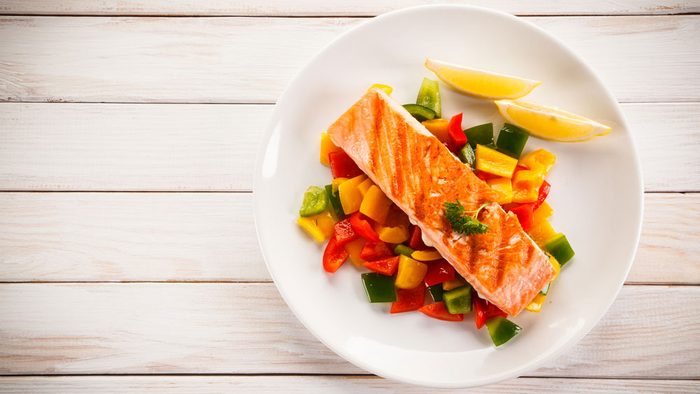
Are you nutrient deficient in vitamin B6?
What you need: 1.3 mg daily
Signs you’re deficient: Scaly lips and cracked corners of the mouth, as well as a swollen tongue, could signal a deficiency.
Why you need it: This vitamin is involved in making chemicals, like serotonin, that transmit signals to your brain. Serotonin is believed to play a major role in regulating mood. B6 also helps with metabolism and maintaining blood sugar levels.
Where to get it: Fortified cereals, legumes, meat, poultry, fish and some fruits and vegetables.
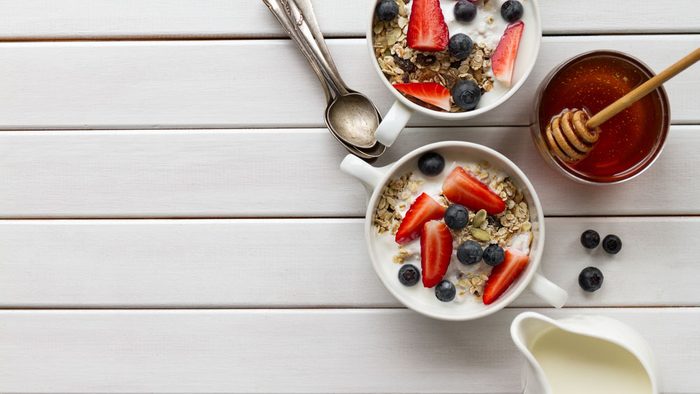
Are you nutrient deficient in vitamin B12?
What you need: 2.4 mcg daily
Signs you’re deficient: Anemia, celiac disease and weakness are a few examples that show you’re not getting enough.
Why you need it: B12 supports healthy nerve cells and red blood cells. It’s also involved in making DNA. Get low on B12 and you could experience symptoms like pins and needles, fatigue, weakness and trouble thinking.
Where to get it: Plants don’t make B12. Sources include fish, meat, dairy and fortified cereals. If you don’t eat meat, talk to your doctor about taking a supplement.
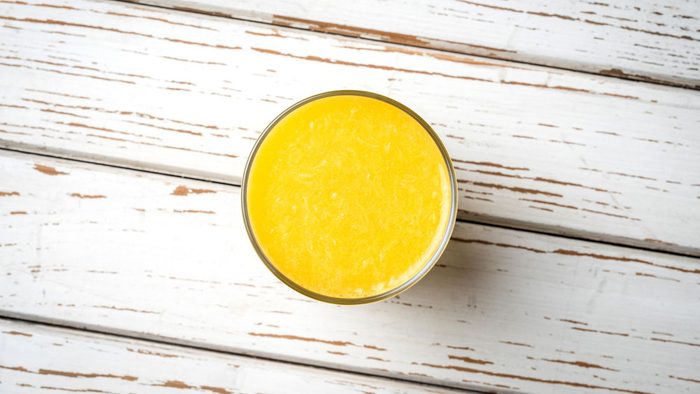
Are you nutrient deficient in vitamin C?
What you need: 75 mg daily
Signs you’re deficient: You might not be getting enough vitamin C if you have gingivitis, rash, slow wound healing and more.
Why you need it: C helps you body absorb iron. It also plays a role in forming collagen in bones, cartilage, muscle and blood vessels. Contrary to popular belief, there’s no evidence it wards off colds and flu.
Where to get it: Fruits and veggies. One glass of OJ will give you all the vitamin C you need in a day.
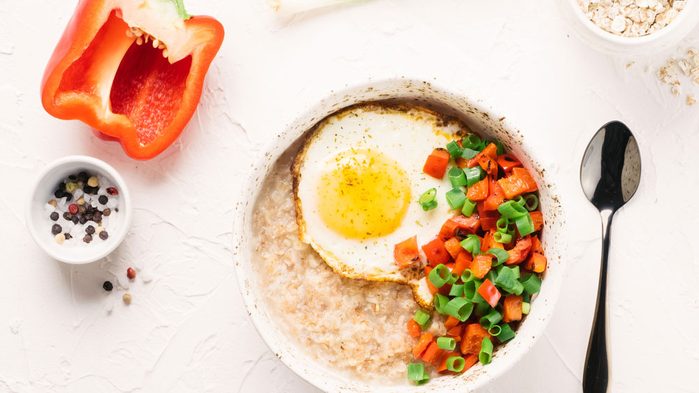
Are you nutrient deficient in vitamin D?
What you need: 5 mcg (200 IU) daily
Signs you’re deficient: High-blood pressure, a recent bone fracture and fatigue and other symptoms could signal a deficiency.
Why you need it: D keeps your bones healthy and research suggests it may help reduce risk of cancer and osteoporosis (when combined with a healthy diet and exercise).
Where to get it: Your skin produces vitamin D when it’s hit by UV light, so sunshine is your major source. Food sources include fortified milk, eggs, fish and fish oils. Ask your doctor about taking a daily supplement.
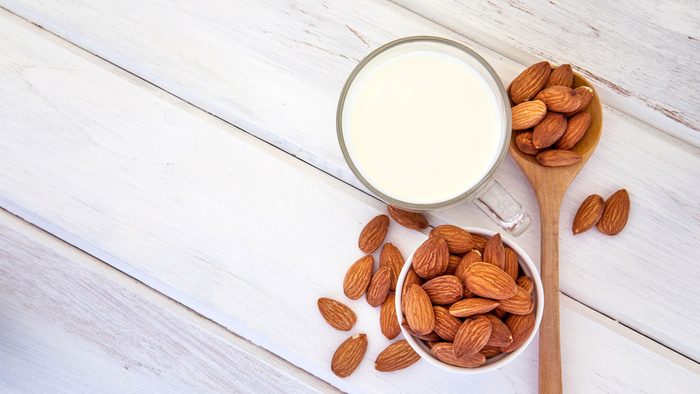
Are you nutrient deficient in calcium?
What you need: 1,000 mg daily
Signs you’re deficient: It is worth checking on, if you have had a recent broken bone, muscle spasms, numb extremities and other symptoms.
Why you need it: Essential for maintaining healthy bones and teeth. Research suggests getting enough calcium could help reduce risk of bone fracture in older adults.
Where to get it: Milk or other fortified beverages. Other food sources include vegetables, salmon, legumes and lentils.
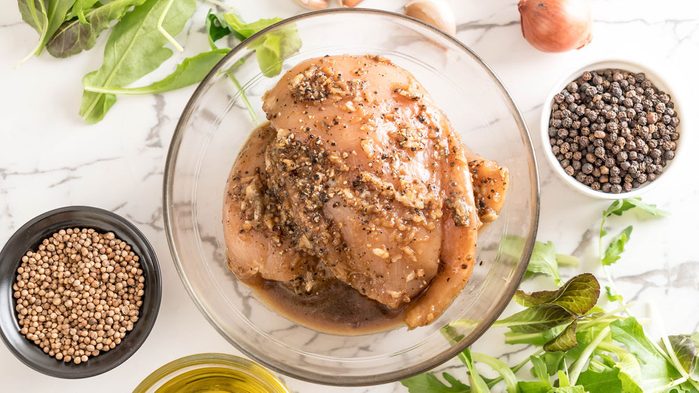
Are you nutrient deficient in iron?
What you need: 18 mg per day
Signs you’re deficient: Brittle nails, literally cold feet, pale skin are a few signals you might be low in iron.
Why you need it: We need iron to produce haemoglobin for our red blood cells, which transport oxygen from our lungs to the rest of our bodies. Signs of iron deficiency include low immunity, dizziness, irritability, pale complexion and headaches.
How to get it: Heme iron, the kind our bodies absorb most quickly, is found in meat, seafood and poultry. Lentils, beans, peas, leafy greens, eggs and seeds are sources of the non-heme variety. Talk to your doctor if you suspect you need a supplement.
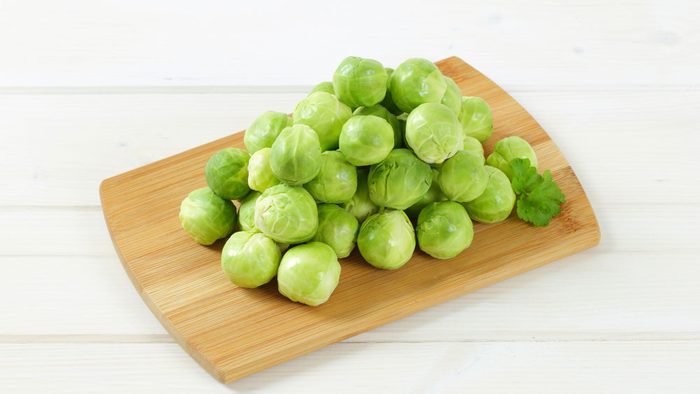
Are you nutrient deficient in folate?
What you need: 400 mcg daily (for women of childbearing age)
Signs you’re deficient: Yellow tinge on skin, mouth ulcers and other symptoms.
Why you need it: Folate is essential to spine, skull and brain development in a fetus. If you could become pregnant, talk to your doctor about taking a supplement to reduce their baby’s risk of developing neural tube defects.
Where to get it: Dietary sources include leafy greens, fruits, Brussel sprouts, asparagus, eggs, seafood, meats and grains.
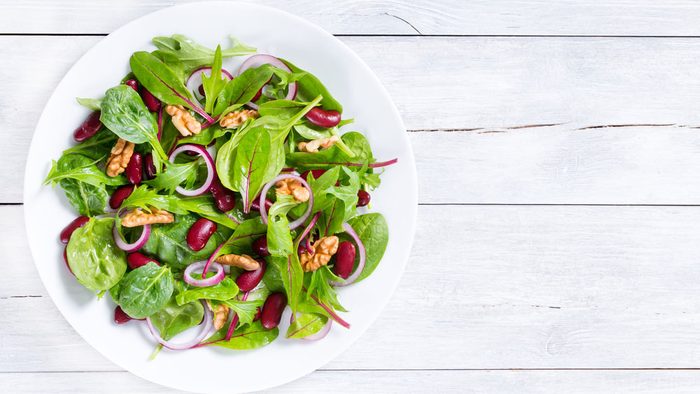
Are you nutrient deficient in magnesium?
What you need: 320 mg daily
Signs you’re deficient: Symptoms can include many things from acne to bloating, and heart palpitations to nervousness.
Why you need it: This mineral plays a big role in metabolism and also helps support immunity, cardiovascular health, bone strength, and muscle and nerve function.
Where to get it: Leafy greens are your primary source. Oats, milk and some legumes and nuts also contain magnesium.
